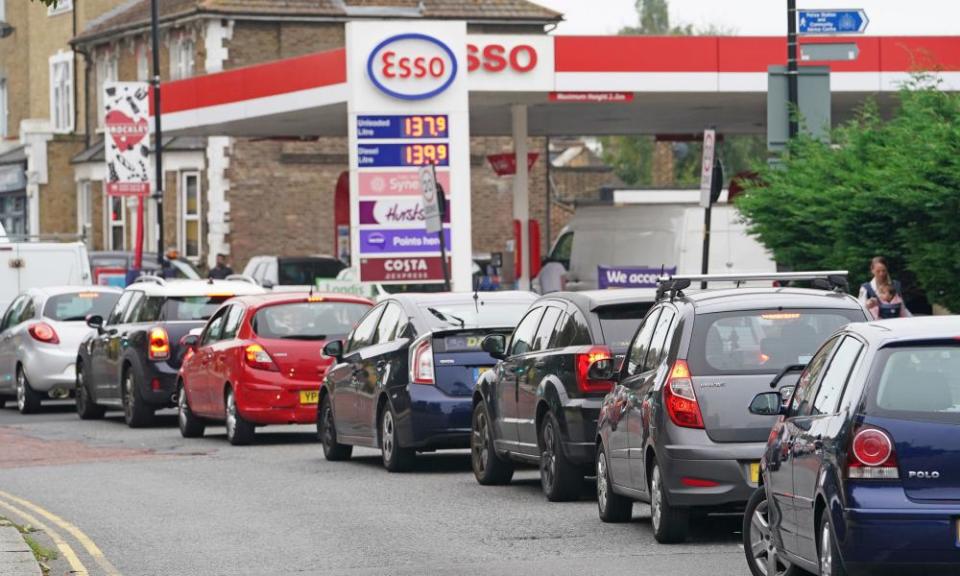In a queue for petrol in Essex, I found an unexpected camaraderie

Before this weekend, I had never seen a petrol station cashier answer a telephone. Yet here he was, this harassed man in front of me, fielding several calls as I queued to pay for my fuel. “I would come soon if I were you,” he suggested to one caller. “We haven’t got much left.”
A couple of hours earlier I had been relaxing in the bliss of the era before this latest episode of Crisis UK – the nationwide rush for petrol, ultimately sparked by labour shortages in the haulier industry. I admit that I had read the news of clogged forecourts with a sense of smugness at the perceived foolishness of those involved – collectively worsening the problem that they were trying to avoid. Then I joined them. My fuel story was that I had a call from my wife who reminded me that she was planning to drive her mother from Essex to Norwich to visit her new grandson. The trip had been planned for months and so, of course, was one of those marked essential. And our tank was empty.
I left my desk with a sudden realisation that all the people who had rushed out to fill their tanks up were acting perfectly rationally too. I turned the corner in my patch of Southend, Essex, and on to a main drag where I knew there were a couple of petrol stations. But long queues were creating tailbacks and I couldn’t get near. I drove out of town, but each station I reached had run out of fuel.
I found somewhere after an hour of driving aimlessly and joining fruitless queues. The new, often motionless line of traffic actually felt like a moment of relief from the chaos of WFH-with-two-kids life. I even had a book with me. But the world outside was far too distracting.
People seemed genuinely … pumped. One woman was grinning from ear to ear: “Crazy isn’t it?” As I neared my chosen nozzle, a trio of drivers swapped highly detailed stories of why they, like me, absolutely had to get the fuel now and how much further they thought they might have been able to eke it out. Outside the forecourt, pedestrians marvelled, many waving and smiling, one taking a photo, another stopping for a short exchange with a queueing driver. Some driving past tooted their horn, sometimes shouting a sarcastic good luck.
It wasn’t all that quirky across the country, of course. The former rugby player David Flatman has described how his HGV-driving brother-in-law was being followed by desperate drivers as he tried to deliver fuel. There have been reports of fist-fights breaking out over that last drop of diesel. But my experience at the pumps was a reminder that these kinds of disruptions – when our dependence on essential workers is briefly made visible, along with the fragility of any social order – contain an element of carnivalesque. The sense of breaking out of the normal day-to-day (without the dread of Covid attached) seemed to genuinely excite those taking part.
It is perhaps the latest example of what the Guardian’s media editor, Jim Waterson, described on Twitter as “the theory of the UK as a load of messy types who live for drama”. If all the world’s a stage, then that includes petrol station forecourts. It might not be entirely surprising that a nation that spent much of the past 1.5 years passing out drunk in front of evening Zoom calls that went on for too long might try to make the best of a bad situation.
Compared to a deadly pandemic, the weekend’s fuel crisis – and we’ll see how it plays out over the coming days and weeks – seemed almost enjoyable. After all, many of us will be learning how to squeeze some fun out of self-inflicted inconveniences in the years to come, if things carry on this way. If someone doesn’t suggest sending in the army, is it even a party?
Tim Burrows writes about society, culture and place

 Yahoo Movies
Yahoo Movies 